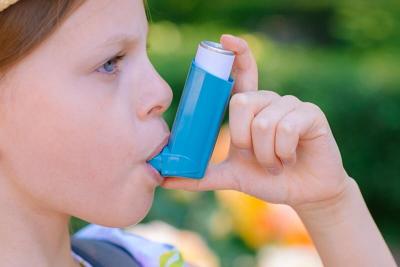Key Takeaways
Routine screening can detect asthma in undiagnosed kids living in communities with high asthma rates
More than two-thirds of undiagnosed kids had at least one risk factor for asthma
A quarter of those undiagnosed kids with risk factors were subsequently diagnosed with asthma
FRIDAY, Sept. 26, 2025 (HealthDay News) — Routine screening can help find kids who are suffering from undiagnosed asthma in communities with high levels of the breathing disorder, a new study says.
Asthma screening during well-child visits found that more than two-thirds (35%) of children with no previous diagnosis of asthma had at least one risk factor for the disease, researchers will report Monday at an American Academy of Pediatrics’ meeting in Denver.
Further, about 24% of kids with risk factors were subsequently diagnosed with asthma, researchers said.
Those diagnosed with asthma reported coughing or shortness of breath at night, previous use of an inhaler or difficulty exercising due to breathing problems, researchers said.
“Asthma is often diagnosed late or not at all because parents may not think of certain symptoms such as night-time cough or needing to stop activity to catch your breath, as being related to asthma,” researcher Dr. Janine Rethy, division chief of community pediatrics at MedStar Health, a not-for-profit health care provider in the Baltimore-Washington D.C., metropolitan area, said in a news release.
For the study, researchers screened 650 children ages 2 and older for asthma during well-child visits performed in a mobile medical clinic between 2021 and 2024. The mobile clinic performed these screens in urban areas with a known high prevalence of asthma.
Overall, about 8% of children screened were found to have previously undiagnosed asthma, results showed. Another 18% of the kids had a previous diagnosis of asthma.
The children’s home environment likely played a factor in their asthma, researchers found.
About 52% of the undiagnosed kids who screened positive for asthma had poor housing conditions — mold, roaches, mice, rats, peeling paint or leaking water.
About 38% of kids with a prior diagnosis of asthma also lived in such conditions, results showed.
“There are also many environmental triggers in the home that may contribute to these symptoms and which a pediatrician should know about to help understand triggers and incorporate into a treatment plan,” Rethy said.
The study shows that more kids with asthma can be helped if doctors and public health experts focus screening efforts on places known to have high rates of asthma, researchers said.
“Asthma is highly treatable if diagnosed early and approached with a holistic lens that includes identifying and addressing environmental triggers,” researcher Dr. Karen Ganacias, a MedStar Health pediatrician, said in a news release.
“In populations with high asthma prevalence, routine screening for asthma symptoms and modifiable home environmental triggers can be an important first step to improving outcomes and decreasing disparities,” Ganacias added.
Findings presented at medical meetings should be considered preliminary until published in a peer-reviewed journal.
More information
The American Lung Association has more on diagnosing asthma.
SOURCE: American Academy of Pediatrics, news release, Sept. 26, 2025
What This Means For You
Kids who live in poor housing conditions are more likely to develop asthma.





















(0) comments
Welcome to the discussion.
Log In
Keep it Clean. Please avoid obscene, vulgar, lewd, racist or sexually-oriented language.
PLEASE TURN OFF YOUR CAPS LOCK.
Don't Threaten. Threats of harming another person will not be tolerated.
Be Truthful. Don't knowingly lie about anyone or anything.
Be Nice. No racism, sexism or any sort of -ism that is degrading to another person.
Be Proactive. Use the 'Report' link on each comment to let us know of abusive posts.
Share with Us. We'd love to hear eyewitness accounts, the history behind an article.